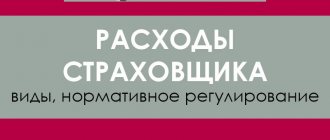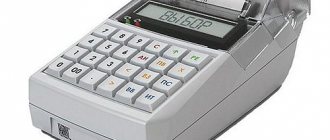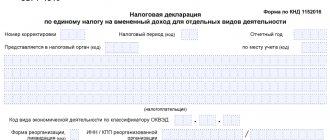In accordance with the law, CCP must be used in a number of cases. Thus, individual entrepreneurs and firms are required to use cash register systems when receiving, paying, offsetting and returning prepayments or advances, issuing and repaying loans to pay for goods and services, as well as when receiving and paying cash or non-cash funds for them.
The Ministry of Finance insists that in these operations CCT is used regardless of the volume of revenue of the enterprise. The client must also be given a check. The department expressed this position in its letter dated December 11, 2019 No. 03-01-15/96928.
What is cash register technology and how does it work?
A cash register is an analogue of an earlier device that issues a check and records the fact of payment or issuance of money. The difference between the modern device is that now, instead of the ECLZ, all operations are remembered by the fiscal drive. It not only stores, but also transmits data to the tax service so that government authorities always have up-to-date information on money and commodity turnover at their disposal.
Cash register models work in conjunction with the Internet, through which they connect with the fiscal data operator - the link between the retailer and the Federal Tax Service. The Federal Law on the use of cash register systems regulates the activities and use of technology, periodically introducing changes in the form of amendments. Therefore, you need to carefully monitor new editions so as not to violate legal requirements.
Law on the application of CCP
According to Federal Law No. 54 on the application of cash register systems, any type of business activity, including the provision of services, must record financial transactions exclusively through a new-style cash register. This applies to those who have been using such technology for a long time, and to groups that previously did not have to use devices when serving customers.
Why was the procedure for using CCP introduced? There are several reasons for this:
| Revenue tracking. Service through cash registers will allow you to bring unscrupulous business owners out of the shadows, creating healthy competition for all other entrepreneurs. In this way, not only do legal contributions to the budget increase, but pricing is also regulated. |
| Reduced inspections. Despite some negativity at the start of the project, the majority of trade participants noted the positive dynamics associated with the use of cash register systems. The number of inspection raids has decreased, since the tax office always has the necessary data at hand. |
| Process automation. With the help of modern cash register equipment and appropriate software, it was possible to establish automatic generation of reports, preparation of documents and a lot of other paper work that was previously performed manually. |
| Buyer protection. Now, having received an electronic copy of the receipt, you can find out details about the purchase, its origin and other information. Such a service was previously unavailable to the average consumer, so it was received very positively. |
Application of CCP in 2021: who should install the device
Cash equipment is required to be used by everyone who carries out business activities related to the receipt and issuance of funds. Moreover, this applies not only to cash, but also to non-cash payments via bank cards or electronic wallets. However, there are some nuances here: for example, if funds are transferred from account to account by enterprises, then a cash desk is not needed. At the same time, the interaction of an individual with a company is no longer included in this exception; such transactions are subject to a general requirement.
There are some exceptions - for example, until July 2021, individual entrepreneurs who do not have employees may not use CCT, but only if they provide services or sell products of their own making. As soon as at least one employment contract is concluded or a third-party item is sold, cash register equipment must be installed within 30 calendar days.
Who is exempt from online cash register until 2021
The following business entities are temporarily exempt from using online cash registers until July 1, 2019:
- Individual entrepreneurs on PSN and UTII, legal entities on UTII, which, having employees on staff, carry out activities not related to retail and catering - here sellers and restaurateurs are again “in the wings”).
- Individual entrepreneurs on PSN and UTII, which, without employees, carry out any activities permitted under the relevant tax regimes (including retail and catering - there is a loophole here, but the business owner will have to rely on his own strength).
A complete list of permitted activities for which online cash registers may not be used in both cases is given in paragraph 7.1 of Article 7 of Law No. 290-FZ of July 3, 2016 - LINK.
The specified categories of business entities under special regimes are required to issue a sales receipt instead of an online cash register receipt - at the request of the buyer or client.
- Individual entrepreneurs and legal entities providing services, having employees, in any field of activity, except for public catering (under any taxation system - if not in a special regime, then in the OSN, simplified tax system, unified agricultural tax).
- Individual entrepreneurs and legal entities performing work and providing services to the public without having employees - in any field of activity (and regardless of the applied tax regime).
It is worth keeping in mind that a legal entity without employees will most likely not be able to function in practice, since in order for a business company to enter into legal relations, it must at least have a director appointed. Even if he does not have an employment contract (that is, if the director is the founder himself), then he, nevertheless, can be considered as an employee - since he will be considered an insured person in the pension, social and health insurance system.
The specified categories of business entities providing services are required to issue strict reporting forms to clients instead of online cash register receipts - in the manner prescribed by Decree of the Government of Russia dated May 6, 2008 No. 359.
- Individual entrepreneurs and legal entities that, without employees, conduct sales through vending machines.
There are no requirements for issuing documents alternative to checks.
Electronic check: details
The documents regulating the use of cash registers also determine the contents of the cash receipt issued to the buyer. Moreover, regardless of its form - paper or electronic, it should display the following basic details:
- title and serial number of the document;
- date, time and place where the calculation was made;
- name, TIN and taxation system of the individual entrepreneur/organization;
- form and amount of payment - income-expense, cash-non-cash;
- the name and position of the employee who issued the check;
- link to the website where you can view all the information (for the paper version);
- detailed information about the product or type of service, the amount of VAT.
It also includes the number, series of the fiscal drive and cash register and a QR code. A recent innovation was an addition to the details - a mandatory “product code” item was added. The use of cash register systems for services does not require a product code, which is formed in accordance with the activities of the enterprise. For marked goods there is also a special mark on the receipt in the form of [M].
Who and what types of activities are exempt from online cash registers indefinitely
They can decide at their own discretion whether to use an online cash register or not (clauses 2, 2.1, 3, 5, 8, 12 of Article 2 of Law No. 54-FZ):
- Individual entrepreneurs and legal entities that carry out the types of activities named in paragraph 2 of Article 2 of the law.
In particular, these types of activities include:
- sale of newspapers and magazines in paper form (and related products, the list of which is determined by the law of the subject of the Russian Federation);
- sale of tickets in public transport (but only until July 1, 2021, after which you will need to use an online ticket office for this type of activity);
- providing meals to students of educational institutions;
- retail trade in markets (unless it occurs outside a store, kiosk, tent), unless such trade is related to the sale of non-food products according to the list reflected in the order of the Russian government dated April 14, 2017 No. 698-r;
- peddling (in the open air, on trains, on airplanes) trade in goods that are not technically complex and require special conditions for storage and sale, as well as those that are not classified as goods subject to labeling;
- sale of ice cream, soft drinks (including kvass and milk from tanks);
- sale of bottled vegetable oil, live fish, vegetables, fruits;
- sale of kerosene;
- acceptance of glass containers and waste materials (except scrap metal) from individuals;
- provision of various household services;
- renting out your own residential premises (only individual entrepreneurs and legal entities must use cash register systems when carrying out this type of activity).
An important nuance: if an individual entrepreneur or legal entity sells excisable goods (for example, alcohol or tobacco products), then you will not be able to take advantage of the preference in question. The same applies if payments are made automatically (for example, through a vending machine, which in this case should have an automatic online cash register built into it).
Business entities carrying out the above types of activities have the right not to issue the buyer or client with any documents confirming the purchase, instead of a cash receipt. But it’s still useful to do this - consumer confidence will increase. An alternative document to a cash receipt can be the same sales receipt, BSO - as an option, printed using a receipt printer.
- Individual entrepreneurs on PSN, carrying out activities that do not relate to those named in subparagraphs 3, 6, 9 - 11, 18, 28, 32, 33, 37, 38, 40, 45 - 48, 53, 56, 63 of paragraph 2 Article 346.43 of the Tax Code of the Russian Federation - LINK.
Please note that the types of activities that are subject to an indefinite exemption from CCP do not include such large segments as retail trade and public catering. There, in general, you need to use an online cash register.
Individual entrepreneurs on PSN, who may refuse to use online cash registers, in turn, need to issue clients with a document alternative to a cash register receipt. This document must have the details named in paragraphs 4-12 of paragraph 1 of Article 4.7 of Law No. 54-FZ.
Namely:
- name of the document, its serial number from the beginning of the cashier’s shift;
- date, time, place of receipt of funds from the buyer or client;
- name of the business entity (or full name of the individual entrepreneur), TIN;
- the tax regime that the company applies;
- information about the content of the payment transaction (receipt, expense);
- a list of goods or services for which the buyer or client pays;
- price for selected goods or services including VAT (or highlighting those goods sold without VAT) - final, taking into account discounts and markups;
- information about the method of accepting payment - in cash or through acquiring (with a division of the amounts accepted by each method);
- Full name and position of the person who accepted the payment.
The document replacing the cash receipt must be signed by the seller.
From a technical point of view, the document in question can be generated in any way convenient for the seller - on a receipt printer, on a computer, or even manually.
The IP document in question on the PSN must be issued to the client or buyer without waiting for a request from him.
- Individual entrepreneurs and legal entities that operate in hard-to-reach areas.
In each region, the authorities themselves determine which localities these are and publish the relevant regulations (more details about this can be found in THIS ARTICLE). Such areas cannot include:
- cities;
- regional centers (unless they are the only settlements in their municipality);
- PGT.
At the same time, you need to take into account the same rule as in the case of “exceptional” types of activities above - preference is not available when selling excisable goods or using automatic devices.
As in the case of the exemption from the use of cash registers for entrepreneurs on a “patent,” those firms that operate in hard-to-reach areas are required to issue clients and customers with a document alternative to an online cash register receipt.
In the scenario under consideration, a number of special requirements are established for this document in terms of the procedure for issuance and accounting. These requirements are determined by Decree of the Government of Russia dated March 15, 2017 No. 296.
The company has the right to issue a document alternative to a cash register receipt only if the client or buyer themselves requests it.
- Pharmacies operating as legal entities located in paramedic and obstetric centers in rural areas (and separate divisions of medical institutions located in rural areas).
Note that in the scenario under consideration, it is necessary to use an online cash register when using vending machines or selling excisable goods.
There are no requirements for the use of documents alternative to cash receipts for pharmacists and rural hospitals.
- Religious organizations.
There are no requirements for the use of alternatives to cash receipts for such organizations.
- State, municipal libraries belonging to the Russian Academy of Sciences (and other academies, institutes, educational institutions) - when providing paid services within the framework of the main type of activity.
At the same time, the list of such services should be established by the Russian Government.
The list of cases when you can not use the online cash register is listed in the table (the table does not indicate situations when a temporary exemption applies):
Using CCP in 2021: what it looks like in practice
54-FZ on the use of cash registers requires the mandatory sending of fiscal data to the tax office about each financial transaction. To do this, you need to connect the device to the Internet. The exception is for regions remote from communications; they are listed in special lists formed by regional authorities.
Before installing the cash register you will need:
- Select and purchase cash register and fiscal storage
- Create an electronic signature
- Connect the Internet and OFD
- Register with the Federal Tax Service
After installing the cash register at the workplace and concluding all the necessary contracts, it is necessary to instruct employees, with a signature on their financial responsibility.
Having prepared the consumables and connected the device to the network, you need to open a shift:
- press the corresponding button on the device;
- punch several blank checks to check the operation of the equipment;
- print the interim X-report.
The use of cash register systems for payments is mandatory; a check is issued to the buyer and an electronic version is sent if the client so desires.
To close a shift, the following actions are carried out:
- collection and delivery of proceeds to the responsible person;
- Z-report printout.
An online cash register can be push-button, for example, a compact device Atol 91F, with autonomous operation and a wireless connection for working on the road. More respectable multifunctional models, such as Vicky Micro, operate on touch controls - such a cash register is equipped with a large display and a clear interface.
Need help selecting a CCP?
Don’t waste time, we will provide a free consultation and select the cash register that suits you online.
CCP IN CULTURAL INSTITUTIONS: WHAT HAS CHANGED AFTER JULY 1 DEFACTO AND DEJURE
On July 1, the so-called “third wave” of cash reform officially ended, obliging small and micro-business owners throughout the country to use online cash registers. This transition was most painful, in particular, for cultural institutions, especially regional ones, due to the high cost of equipment, technical difficulties, such as the lack of Internet in rural areas, and others. Recent amendments and recent proposed legislation are designed to protect the most vulnerable, but everyone else will have to adapt to the new conditions.
The reform has been carried out since 2021 as part of the implementation of amendments to 54-FZ , according to which all Russian businesses must work with online cash registers. Over the past two years, large and medium-sized businesses have successfully switched to new devices. This summer it's the turn of small businesses.
The law has significantly expanded the list of entities that can operate without using cash registers at all. In accordance with the new rules, CCP may not be used by the following entities (clause 13, article 1.2 of the Federal Law of May 22, 2003 No. 54-FZ):
• homeowners' associations (when paying for HOA services and when accepting payments for housing and utilities); • horticultural and vegetable gardening non-profit partnerships (when paying for the partnership’s services and accepting payments for utilities); • housing and housing-construction cooperatives (when paying for cooperative services and utilities); • other specialized consumer cooperatives (when paying for the provision of services to their members within the framework of their statutory activities); • educational organizations when providing services to the population in the field of education; physical culture and sports organizations when providing services to the population in the field of physical culture and sports; • houses and palaces of culture, houses of folk art, clubs, centers of cultural development, ethnocultural centers, centers of culture and leisure, houses of folklore, houses of crafts, leisure houses, cultural and leisure and cultural and sports centers, museums, libraries and other similar organizations with provision of services to the population in the field of culture.
It is worth noting that in the listed cases it will still be necessary to use cash register systems for cash payments, as well as payments with the presentation of an electronic means of payment, subject to direct interaction between the buyer (client) and the user.
The provisions that stipulate that, regardless of the type of activity, entrepreneurs who are located in hard-to-reach and remote areas (settlements, hamlets, hamlets, work settlements and crossings) are exempt from the introduction of online cash registers, continue to apply (clause 2 and clause 3 Article 2 of Federal Law No. 54-FZ). An alternative to cash registers in such cases are, for example, autonomous cash registers.
Thus, by July 1, 2019, the following were still supposed to start working with online cash registers: • individual entrepreneurs on UTII and patent, who sell goods not of their own production and who do not have employees; • entrepreneurs on UTII and patents who provide services or perform work and who have employees; • organizations and individual entrepreneurs that previously issued BSO with hired employees; • vending without hired workers.
Entrepreneurs who did not fall under the deferment and did not have time to install a cash register before the designated deadline risk receiving a fine from the tax authorities: for legal entities and individual entrepreneurs - from ¾ to one size of the settlement amount without using a cash register, but not less than 30 thousand rubles, for officials - from ¼ to ½ of the amount, but not less than 10 thousand rubles.
After 07/01/2019, the procedure for generating strict reporting forms (SSR) also changed, which was previously regulated by Decree of the Government of the Russian Federation dated 05/06/2008 No. 359 “On the procedure for making cash payments and (or) settlements using payment cards without the use of cash register equipment” , and specifically cultural institutions were guided by Order of the Ministry of Culture of the Russian Federation dated December 17, 2008 No. 257 “On approval of strict reporting forms” (both documents ceased to be valid due to the end of the transition period).
The BSO is now understood as “a primary accounting document, equivalent to a cash receipt, generated in electronic form and (or) printed using an automated system for strict reporting forms at the time of payment between the user and the client for services rendered, containing information about the payment, confirming the fact of its implementation and complying with the requirements of the legislation of the Russian Federation on the use of cash register equipment" (Article 1.1. Federal Law No. 54-FZ).
Whereas the Automated System for Strict Reporting Forms (AS BSO), according to the definition, is “cash control equipment used to generate strict reporting forms in electronic form, as well as print them on paper.”
This means that a BSO can be generated by any model of cash register with a printer, and not just those cash registers that are marked in the Federal Tax Service register as “AS BSO”. Traditional forms of BSO (receipts, tickets) remain, having lost the fiscal part, which means their use cannot be considered a condition for exemption from the use of cash register systems.
In paragraph 1 of Art. 4.7 of Federal Law No. 54-FZ lists the mandatory details that must be present on a cash register or BSO check. This list has been supplemented since 07/01/2019 (Federal Law dated 07/03/2018 No. 192-FZ).
It is important to note that a cash receipt and BSO may contain, in addition to the mandatory ones, additional details that take into account the specifics of the field of activity in which payments are made (clause 7 p. 4.7 of Federal Law 54-FZ), as well as any other information not confirmed by a fiscal sign , but meets the interests of business (it does not fall into the Federal Tax Service).
Since traditional BSO (for example, tickets) have not been abolished and cultural institutions still have the right to use them, today there are three options for their integration with the cash register documents required for issuance: • cash register BSO is printed using a cash register in the form of one single document , which includes all the additional information necessary for the enterprise (for example, row and place in the hall); • traditional BSO and cash receipt; • traditional BSO, on which a QR code is applied, linking to a cash receipt.
If for some reason it is not technically possible to print a QR code, it is enough for the BSO to indicate the six details necessary to identify the check, namely: the date and time of the settlement, the serial number of the fiscal document, the payment attribute, the settlement amount, the serial number fiscal accumulator and fiscal sign of the document (clause 5.8 of article 1.2 of Federal Law 54-FZ).
The Federal Tax Service explained (letter of the Federal Tax Service of the Russian Federation dated May 30, 2019 No. SD-4-3/10485) that, when accepting payment from individuals for the above tickets, enterprises have the right to apply VAT exemption when issuing documents in one of the following configurations: • BSO, corresponding requirements of the law on CCP; • a ticket in accordance with Order No. 257 and a check or BSO in accordance with the law on cash register systems.
For non-cash payments by companies and individual entrepreneurs for tickets, in addition to payments using ESP, sellers are exempt from VAT by providing the client with one document of his choice: a BSO that meets the requirements of the law on cash register transactions, or a ticket in the form established by Order No. 257. If the organization paid by bank transfer, in this case one ticket will be enough.
In accordance with subparagraph 20 of paragraph 2 of Article 149 of the Code, the sale by organizations operating in the field of culture and art of entrance tickets and subscriptions to theater, entertainment, cultural, educational and entertainment events, the form of which is approved in the prescribed manner, is exempt from VAT. as a strict reporting form,” says the letter from the Federal Tax Service.
The Law also provides for cases when cash register systems can be used remotely, that is, the cash register can be located outside the place of settlement (new clause 5.6, Article 1.2 of Federal Law No. 54-FZ): • in case of peddling trade and in case of remote sales of goods (with the exception of non-cash payments on the Internet and through a vending machine, the display of which shows a QR code); • when making payments at the place of performance of work, provision of services, when the work is performed (services are provided) outside a retail facility, retail location, building, structure, structure and their parts and (or) land plot used by the user to perform work and (or) provide services on the basis of ownership, lease or other legal grounds; • in the calculations provided for in clauses 5.8-5.10 of Art. 1.2 of Federal Law 54-FZ (when providing services to the population using approved BSOs, selling travel tickets in the vehicle, paying for housing and communal services).
In these cases, the cash receipt and BSO can be transferred to the client in one of two ways (clause 5.7 of Article 1.2 of the Law on Cash Register): • send information to the client’s email or phone number that will allow them to identify the cash receipt on the Federal Tax Service or OFD website; • enable the client to read the QR code from any convenient device at the time of payment. This will allow you to find the check in the Federal Tax Service application and, if necessary, print it. Such a check is equivalent to a check generated on a cash register or sent electronically.
However, the amendments do not cancel the ability to use a regular online cash register at the point of payment.
Finally, we note that at the end of July, a group of senators of the Federation Council of the Russian Federation submitted to the State Duma bill No. 761631-7 with amendments to Federal Law No. 54-FZ, which proposes to exempt municipal cultural institutions from the use of CCT.
Politicians referred to Rosstat data, according to which, in 2017, the number of cultural and leisure organizations (in rural areas) in the country was 38 thousand. With the cost of CCPs averaging 23-25 thousand rubles (including regular maintenance), their widespread implementation will lead to additional costs for the cultural industry, estimated at 900 million rubles. This, in turn, will inevitably lead to an increase in the cost of services.
As noted in the explanatory note, city institutions have the financial capacity to purchase cash registers, and their cash flow is often significant. At the same time, municipal cultural institutions, located mainly in rural areas, have small financial turnover (up to 100,000 rubles per year). Purchasing a cash register will be expensive for them.
However, organizations located in cities, regional centers, and urban-type settlements will not be exempt. According to the authors of the bill, such institutions have the financial capacity to purchase cash register equipment.
Source: Federal Tax Service
TO THE POINT:
SMALL BUSINESSES CAN BE EXEMPTED FROM USE OF ONLINE CASH CARDS
EVERYTHING YOU CAN READ ABOUT FZ-54 ON CINEMAPLEX








